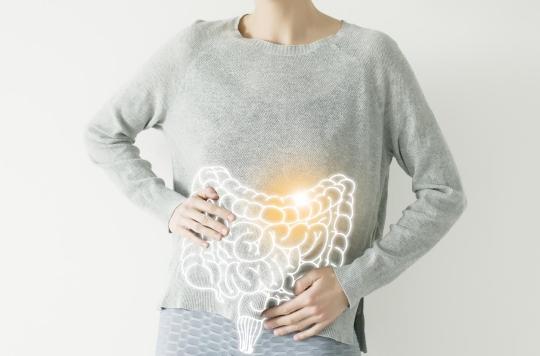While more and more studies tend to show that Covid-19 can impact the whole body, French researchers have just established that the virus also attacks our microbiota.

- Our digestive tract is home to no less than 10 microorganisms, which is as many as the number of cells that make up our body.
- This set of bacteria, viruses, parasites and non-pathogenic fungi constitutes our intestinal microbiota (or intestinal flora).
A new French study has just demonstrated a decrease in the diversity of the intestinal microbiota (or dysbiosis) in patients hospitalized because of Covid-19. Dysbiosis can be the cause of many disorders, including anxiety, asthma, cystitis or even headaches.
A pilot study
“The main objective of this pilot study was to validate the hypothesis of an association between loss of gut microbiota diversity and Covid-19 positivity”, can we read in a press release.
To do this, 79 health professionals in contact with patients with Sras-cov-2 and 64 patients hospitalized in a Covid-19 unit in France were included in the EDIFICE trial from April 2020 to May 2021. Samples Stool samples were collected at the start of the study, and loss of bacterial microbiota diversity was diagnosed after a lag time based on 16S rRNA gene sequencing. Stool positivity to SARS-CoV-2 was then determined by an RT-PCR test.
Presence of the virus in the digestive tract
In the end, 41% of medical staff had a less diverse microbiota than at the start of the study, compared to 65% of hospitalized patients. “This first French study confirms what several Chinese trials had already shown, namely that a significant intestinal dysbiosis is observable in patients hospitalized because of Covid-19. In particular, we observed a decrease in butyrate producers and bifidobacteria in these patients”, explains the director of the study, Professor Alessandra Cervino.
“In addition, the virus was detected at the intestinal level in 61% of hospitalized patients compared to only 2% in hospital staff. This high presence of the virus at the level of the digestive tract deserves to be explored by other studies and better understood. “, she concludes.
.















